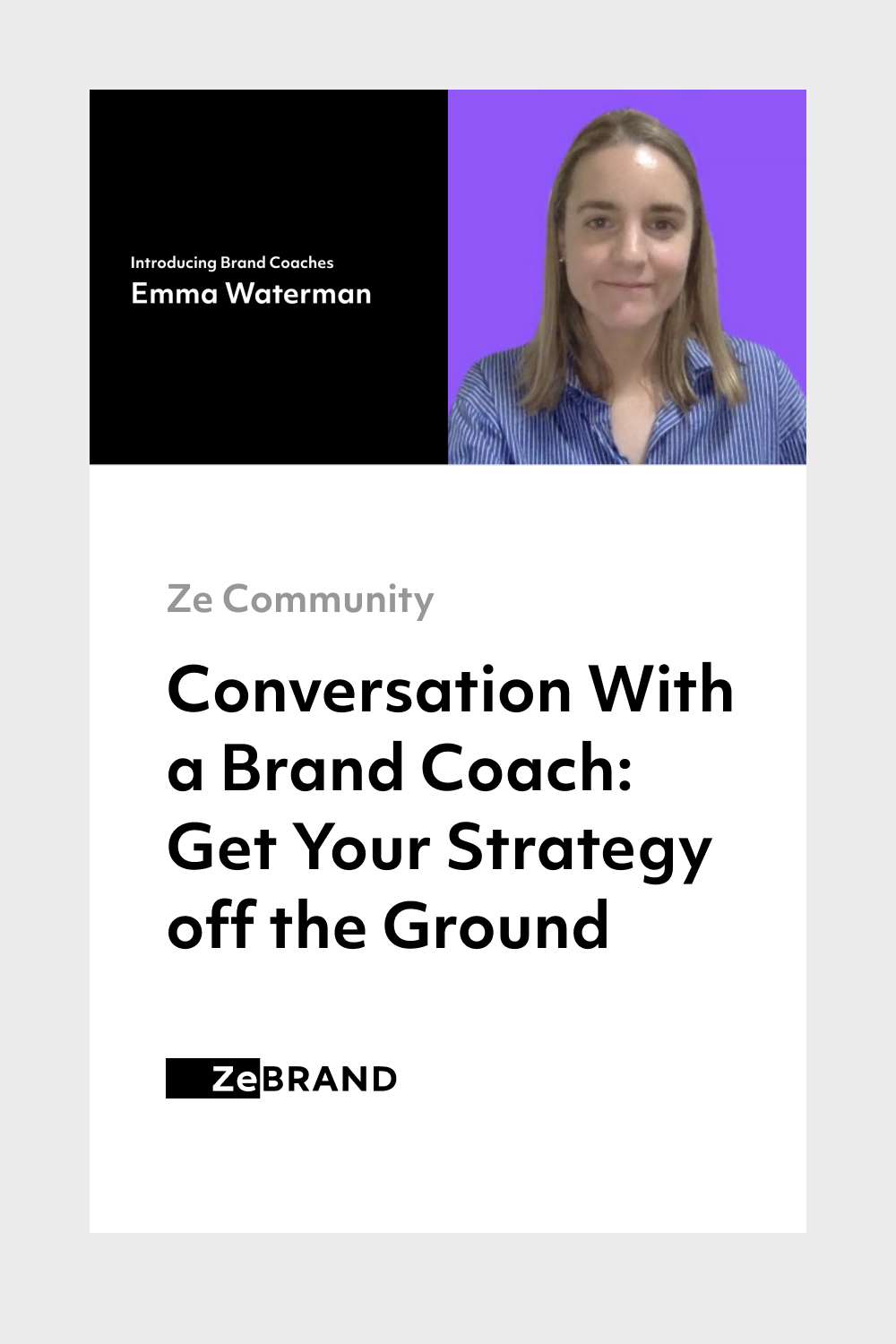Conversation With a Brand Coach: Get Your Strategy off the Ground

Emma Waterman
A brand strategy is an indispensable blueprint for your business. It differentiates you from other businesses. It also guides your employees and you on how you should communicate inside and outside your organization, who you should communicate to, and how you are going to share your vision with others. Coming up with a brand strategy can be tricky; brainstorming with another person can really help.
We talked with Emma Waterman, a brand strategist with experience in various sectors, about why brand strategy is important for startups and SMBs and where she gets her inspiration from. She also provided some great tips and insights on how to get started on a brand strategy.
This interview has been edited for brevity and clarity.
1. Why is a brand strategy important for SMBs/startups?
There’s such energy, ambition and potential when businesses are in their infancy. If we can tap into this passion and channel it into a brand strategy, it can be a really powerful thing.
A brand is more than just a logo. It’s how you look and sound, but also the experiences you give your customers. A strong and clearly defined brand can help you connect with your customers in a more meaningful way – after all, so many of our purchase decisions are driven by feeling and emotion.
Finally, a good brand strategy can help to align those working inside the business, making sure you’re all moving towards a common goal. Everyone is responsible for bringing the brand to life, so remember to get inputs from all parts of your business – from finance to product development – to get a well-rounded perspective.
2. What are some of the main considerations to arrive at a brand strategy?
The most important thing is to understand who your customer is. If you know and understand who your audience is, then you can tailor your brand and marketing to suit their needs and wants.
Of course, it’s also important to take a look at what’s going on in the market and understand the competition. This will help you figure out where your brand fits in the landscape and define what your unique selling point is.
3.What are some of the tools you use to inform your work?
Ideas can come from anywhere and anyone. I always try to keep this in mind as I go about my day to day.
Reading is a great way to broaden your mind. I find platforms such as Substack or Medium really helpful in finding new voices and different perspectives. Particularly in the social media world we live in, where it’s easy to find yourself in an echo chamber, it’s never been more important to understand how others think, feel and navigate through the world. Reading fiction can be useful too – great writers have the power to transport you and build empathy by showing you the world from someone else’s perspective. Once you’ve done your reading, get out into the world and observe people in their natural habitat. You’ll learn a lot just from watching how people behave.
From big ideas, it’s then time to drill down into more precise information that can help create a grounded brand strategy. Working methodologically through all the insights you have collected is essential. I find ZeBrand’s brand DNA boards a practical way of distilling information, and allowing the most important parts to rise to the surface.
As with any tools and frameworks, it’s a good idea to think about what information you’re putting in, as the quality of your output will depend on this. Being a brand coach, I loved helping startups and small businesses filter through the large amounts of information they have at hand, and figuring out what to use in their ZeBrand strategy boards. Curating information and using the right insights goes a long way to creating a clear and authentic brand strategy.
4. What are your three top tips for a startup or SMB who is starting to think of a brand strategy?
・Start wide. Do your research and don’t be afraid to look outside your category – some of the best ideas come laterally.
・Listen and learn from people inside and out of your business. What do your customers need and want and how can those working with you help to deliver on this?
・Get your ideas down. You’re not going to define your brand strategy in a day, but you need somewhere to start and to build your ideas upon. Of course, that doesn’t mean changing your strategy every month, but having a working document allows you to prototype and test your strategy. Then as your business grows and you learn more about your brand, you can refine your strategy accordingly.
Want to know more about Emma Waterman, check out her introduction video.
For our premium users, we offer a 45 minutes session with a brand coach. You can sign up for a session with Emma Waterman here.



